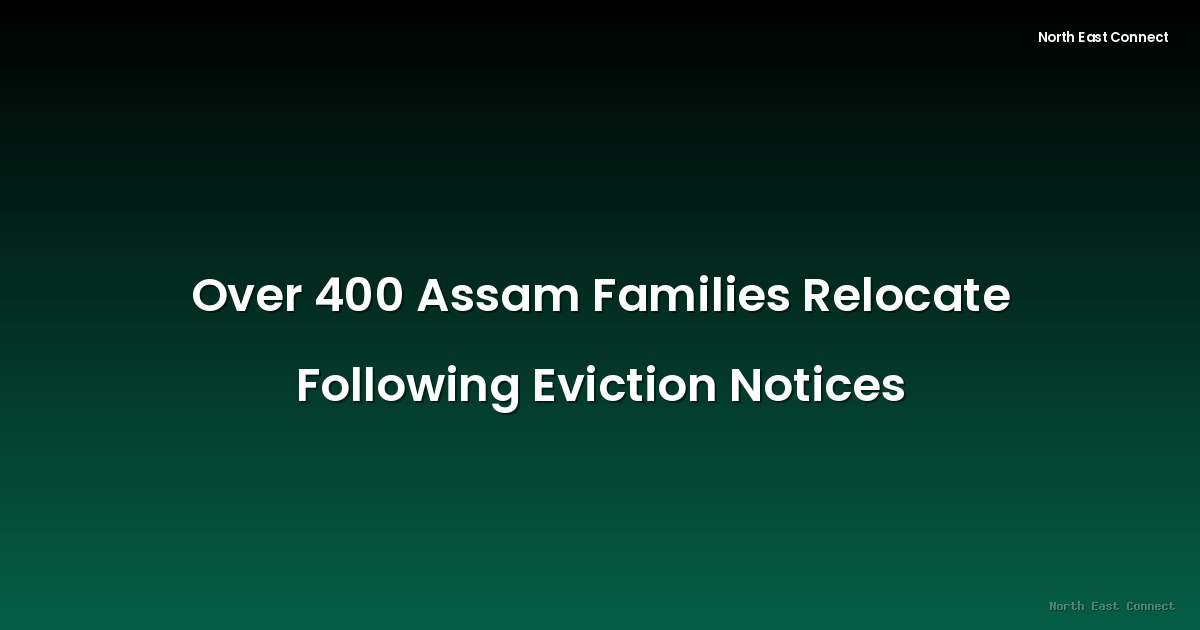2025-08-29 · News
Recent reports indicate that over 400 families in Assam have been displaced after complying with eviction notices issued by the authorities. The exact location of the evictions has not been specified in all reports, but the scale of the displacement underscores the ongoing challenges related to land ownership and resettlement in the region. While the families have vacated the land peacefully, the event has raised concerns about their future well-being and the availability of adequate support for their relocation.
The reasons behind the eviction notices remain unclear from readily available information. However, such actions often stem from disputes over land ownership, encroachment on protected areas, or development projects requiring land clearance. The process of issuing and enforcing eviction notices can be complex and sensitive, particularly when it involves large numbers of families and potentially disrupts established livelihoods.
The successful completion of the relocation process without reported incidents of violence or significant resistance is noteworthy. However, this does not negate the underlying humanitarian concerns. The focus now shifts towards the effective resettlement of these families. This requires a multi-faceted approach encompassing the provision of adequate alternative housing, access to essential services like healthcare and education, and support in establishing new livelihoods. Government agencies and non-governmental organizations (NGOs) have a crucial role in ensuring a smooth transition and mitigating the potential long-term negative impacts on the displaced families.
The long-term consequences of such large-scale displacements extend beyond immediate housing and basic needs. The disruption of social networks, loss of access to traditional resources, and the psychological impact of displacement can have significant and lasting effects on the affected communities. Comprehensive strategies aimed at social and economic rehabilitation are crucial to facilitate successful integration and prevent further marginalization.
The incident underscores the need for proactive and transparent land management policies that balance the needs of development with the rights and well-being of affected communities. Mechanisms for conflict resolution, participatory planning, and equitable compensation should be integral parts of any land acquisition or eviction process. Open communication and engagement with affected populations can help to minimize the negative impacts and ensure a more just and humane approach to displacement. The ongoing monitoring of the situation and its long-term impact on the affected population remains crucial.







